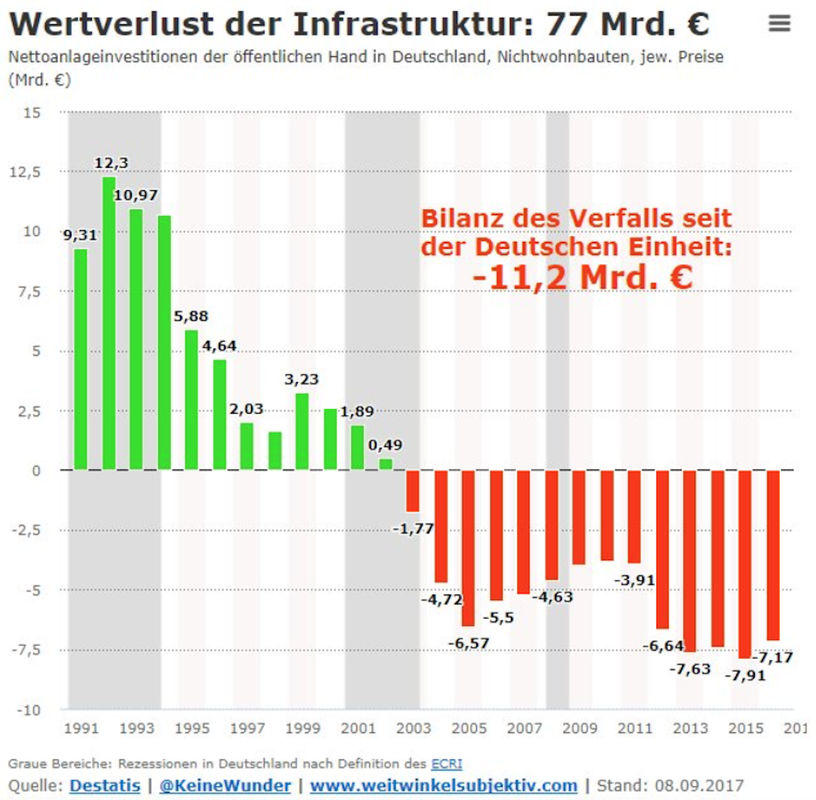To make matters worse, public officials have also pushed continuously for tight monetary policy over the last few years, even during the time when Eurozone output was severely depressed.
Economists widely agree that Southern Europe would have needed a combination fo debt forgiveness as well as an economic stimulus program, both of which Germany got by the way after World War II (the stimulus program was called the Marshall plan).
So here are the achievements of the Merkel government:
- Germany's reputation has suffered in Europe as a result of misguided macroeconomic policies based on faith instead of empirical evidence.
- Macroeconomic imbalances have probabaly contributed to the global financial crisis of 2008. While most countries have reduced their imbalances, Germany's current account surplus has been extremely high for years and now exceeds 8% of GDP. This means that Germany exports capital in excess of 300 billion euros on an annual basis at the moment while public investments in Germany are extremely low. The current account surplus is not a sign of strength!
- Germany's infrastructure is mediocre and actually falling apart. Germany's net investment has been negative for years, meaning that infrastructure is falling apart faster than we repair it (see graph)!
- Germany's universities and the entire eductation system is mediocre, at best, because of a lack of funding.
- Germany's economy is "competitive" (whatever the fuck that is supposed to mean for a country) because wages in Germany have been stagnating for years. Again, this is not a sign of strength! Germany and the Eurozone as a whole would benefit from rising German wages.
This is not too surprising. About 56% of German voters are above the age of 50. There are more than twice as many German voters above 60 than below the age of 30. Here is what those old voter will care about:
- Low inflation
- The age of retirement
- The generosity of pension benefits
Here is what they will care less about:
- The education system and the quality of our universities
- Childcare
- Infrastructure investments
- Rising wages and full employment
- The minimum wage
- Affordability of housing in large cities
To sum up, the Merkel government has been extremely incompetent, frankly a disaster when it comes to economic policies. If you are a young German, you are basically screwed because you get outvoted 2-1 by people who are the age of your parents or older. Rant over.
PS: Germany has been able to borrow at negative rates on a 10-year horizon for several years now. This would have been the best time to increase public investment.
PPS: The Eurozone has been growing at a faster pace than the U.S. Experts agree that the recovery is mostly due to the ECB and the introduction of negative interest rates as well as Quantitative Easing. The German public, however, sees things differently and German politicians frequently cry out for an end of the ECB's monetary easing. Most people have no idea how monetary policy works but are uncomfortable with negative interest rates and Central Banks printing money because it seems "unnatural". A quick end to QE would also certainly entail an economic slowdown. People who argue for the ECB to tighten basically want to kill the economic recovery the Eurozone is finally enjoying after almost a decade of stagnation, a downturn that in the end turned out to be more long-lasting than the Great Depression.


 RSS Feed
RSS Feed
